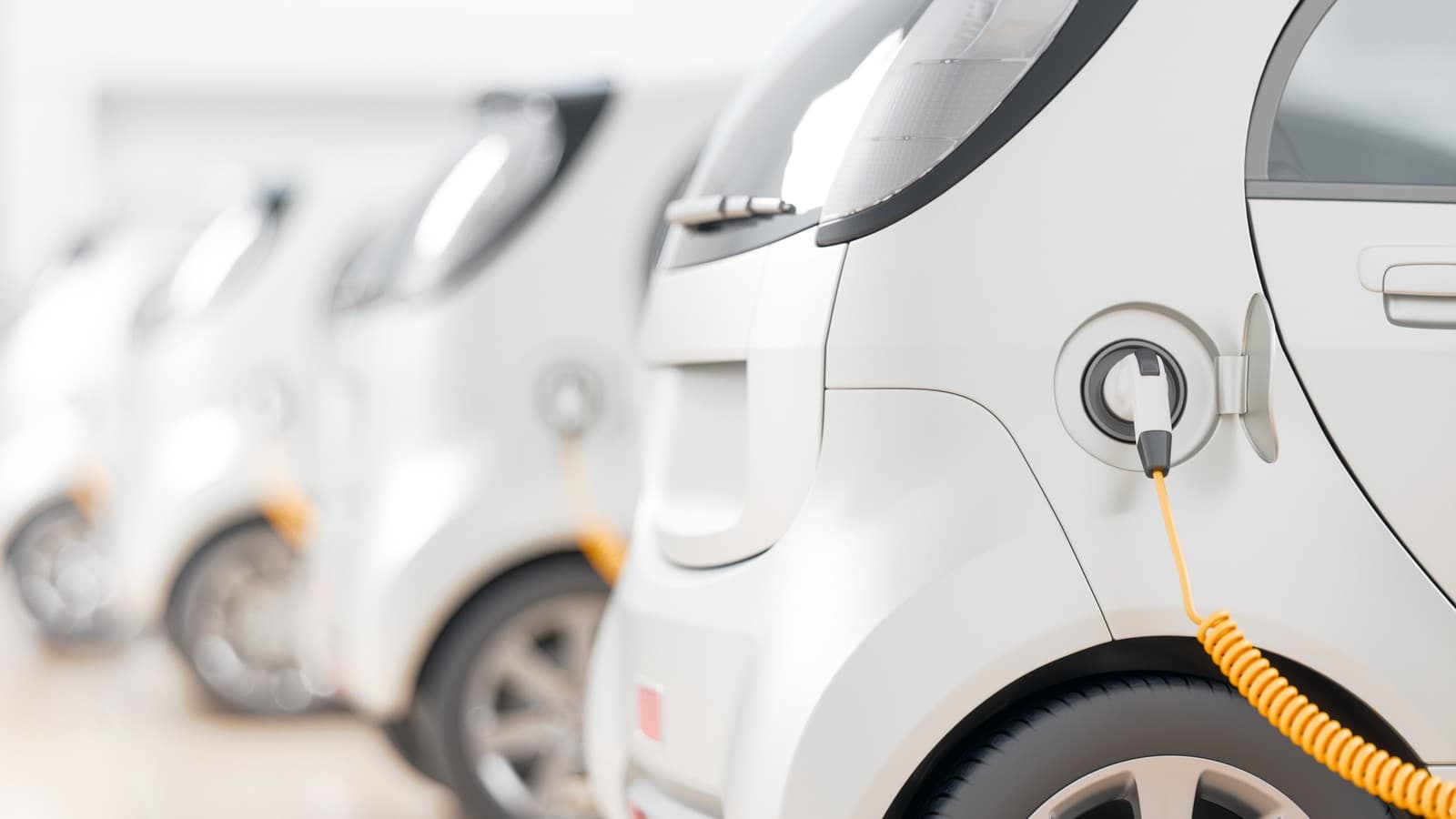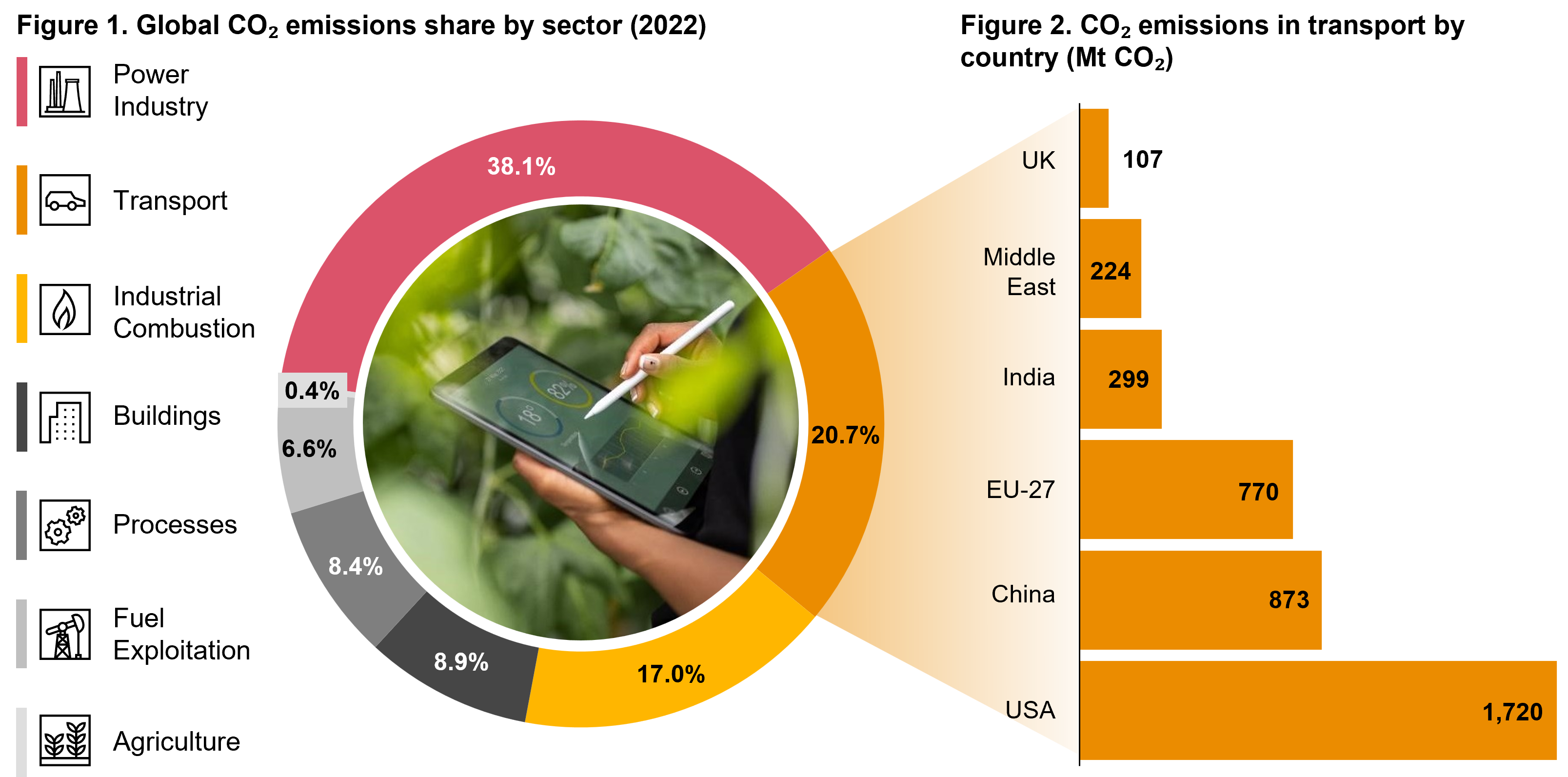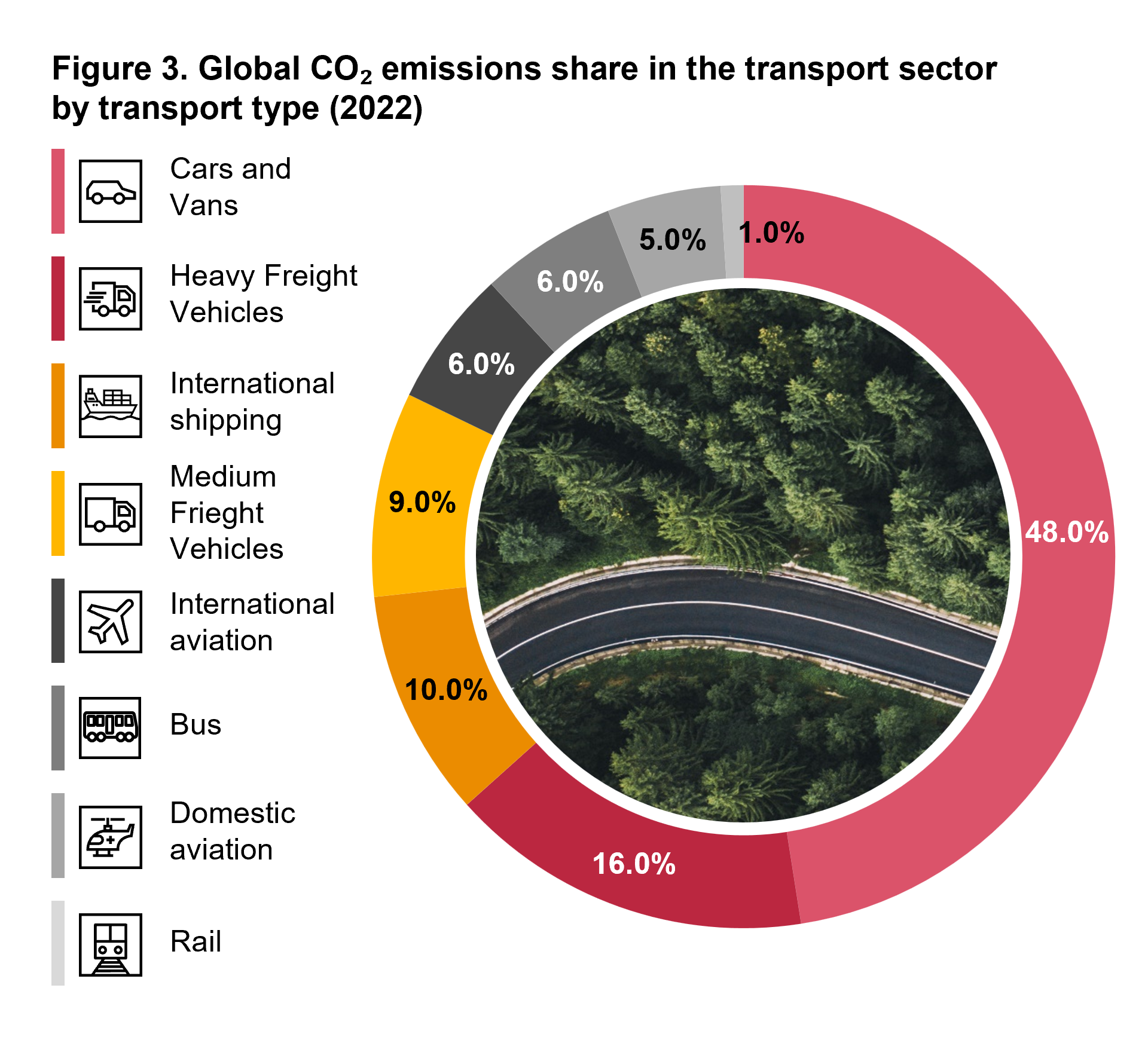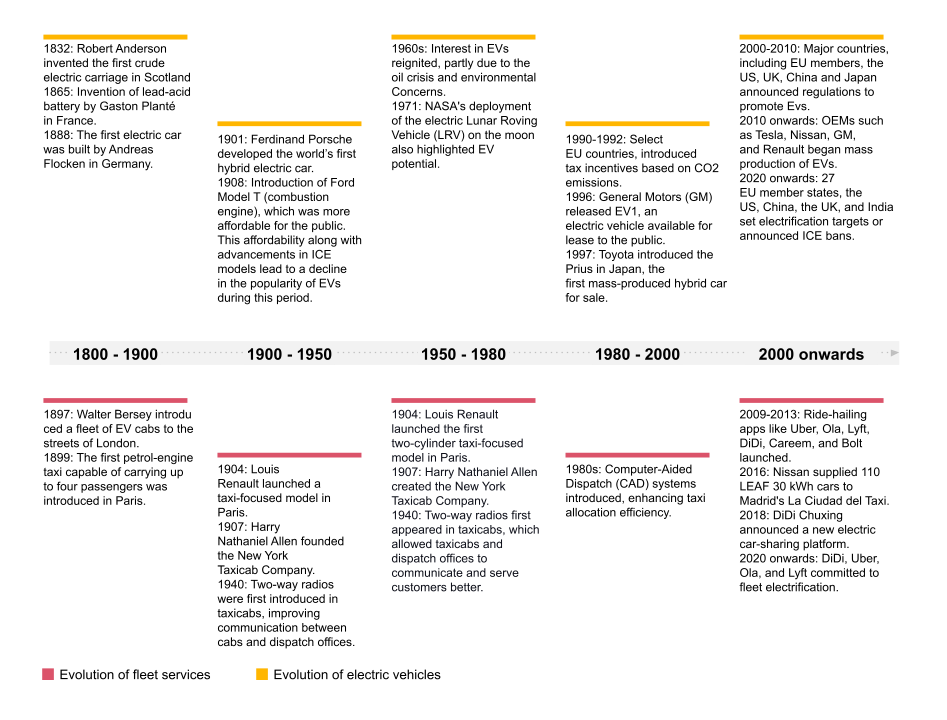Transportation is an integral part of our daily lives, but is also a major contributor to global carbon emissions. Now, as the world grapples with climate change, the transportation sector is taking significant steps to reduce CO₂ emissions worldwide. Electric Vehicles (EVs), powered by renewable energy sources, offer a sustainable alternative that can help us move towards a greener future. This report emphasises the critical need for electrification and decarbonisation in the Mobility as a Service (MaaS) industry, highlighting the transition towards electric mobility (e-mobility) for MaaS fleets.
It also details the adoption of cleaner technologies, the economic benefits of switching to EVs, and the competitive strategies necessary for achieving industry leadership in this evolving landscape.

Key insights include:
- Transportation emissions
- Four pillars for electrification of fleets
- Financial favorability of EVs
- Business models adaptation
- Strategic industry evolution
Transportation emissions
Road transport accounts for around 21% of global CO₂ emissions. As more and more people around the world opt for fleet services instead of personal vehicles, the transition of fleet aggregators from fossil fuel vehicles to EVs plays a crucial role in the decarbonisation of the transportation sector.
Four pillars for electrification of fleets
Successful electric fleet adoption relies on four critical elements: supportive government policies, comprehensive charging infrastructure, an adaptive supply chain that meets supply and demand, and the digital enablement of services.
Financial favorability of EVs
The high initial costs of EVs are offset by their lower operational expenses over time, leading to an overall cost advantage compared to internal combustion engine (ICE) vehicles. This advantage is not only observed in regions where EV subsidies are provided, such as the EU, US, and China, but also in non-subsidised regions like the Middle East, where the cost of owning an electric vehicle has become equivalent to that of ICE vehicles.
Business models adaptation
Adaptability is crucial in the business landscape. Fleet operators are increasingly adopting versatile models, including investments in fleet companies and the introduction of 'charging-as-a-service' to enhance revenue and operational efficiency. Simultaneously, many original equipment manufacturers (OEMs) are developing their own electric and autonomous fleets. This move does not only demonstrate their capabilities in fleet aggregation but also showcases their technological prowess.
Strategic industry evolution
The period from 2020 to 2023 marked a strategic inflexion point, characterised by large fleet operators committing to EV transitions and innovators enhancing the infrastructure through intelligent, integrated platform capabilities.
Rising sea levels, extreme weather conditions, and the deterioration of biodiversity quality emphasise the urgent need to mitigate carbon emissions and address the spiralling consequences of global warming. Global CO₂ emissions increased by ~2%from 2021 to 2022, reaching 38.5 gigatons of carbon dioxide (GtCO₂). (source)
While many sectors contribute to the overall carbon footprint, transportation plays a significant role. In 2022, major countries such as the US, China, and India were at the forefront of transportation emissions, collectively releasing almost 3 billion tonnes of carbon dioxide equivalent (BtCO2/yr).
Additionally, the Middle East saw transportation sector emissions reach 225 MtCO2/yr.
Cars and vans generate the largest share of carbon emissions within the transportation sector, underscoring the push for sustainable mobility.
The sustainability of the transportation sector is critical in achieving net-zero emissions. The adverse impacts on health and significant contribution to global warming from fossil fuel-based mobility highlight the urgency for nations to transition swiftly. Although countries are at different stages of their decarbonisation journey, electrification of the fleet, which includes ride-hailing, ride-pooling, and ridesharing, is emerging as a solution.


Electric mobility timeline
The timeline below traces the development of EVs and its evolution from the early days of MaaS to its electrified future.
Between 2000 and 2020, in response to environmental concerns, governments worldwide enacted regulations to promote EVs, aligning with the 2015 Paris Agreement. Initiatives such as purchase subsidies, tax credits, electrification targets, and efforts to develop the EV charging infrastructure encouraged automakers to accelerate sustainable transportation solutions. As vehicle technologies improved, the fleet service industry also transformed, transitioning from traditional models to taxi fleet aggregation and digitalised services.
The emergence of companies like Uber (USA), DiDi (China), Ola (India), and Lyft (USA) in the early 2010s marked a paradigm shift, introducing app-based ride-booking services that streamlined mobility operations and enhanced user experiences by offering efficient and convenient fleet services.

Conclusion
The shift towards electric mobility for Mobility-as-a-Service (MaaS) fleets is a positive change. It will allow transportation companies to meet the evolving needs of customers and comply with regulations, all while reducing their carbon footprint. This will help them improve their products, reduce risks, and lower their environmental impact. By adopting the right business models and growth strategies to transition to electric vehicles, the MaaS industry can rapidly position itself for long-term success.
The transportation sector plays a key role in paving the way to a sustainable future, acknowledging its contribution to global carbon emissions. The electrification of the fleet, including ride-hailing, ride-pooling, and ridesharing, stands as a transformative solution, not only reducing CO₂ emissions but also elevating user experiences through efficient and convenient fleet services.
Download the full report to discover more about :
Electrification of Fleet Operations
Contributors:

Pragati Mandal
eMobility Senior Associate PwC AC India

Lalit Gholap
eMobility Senior Associate PwC AC India











